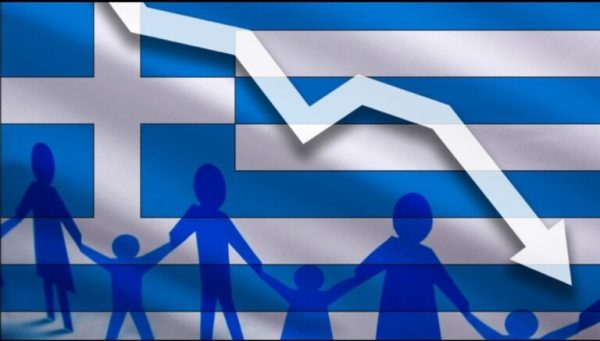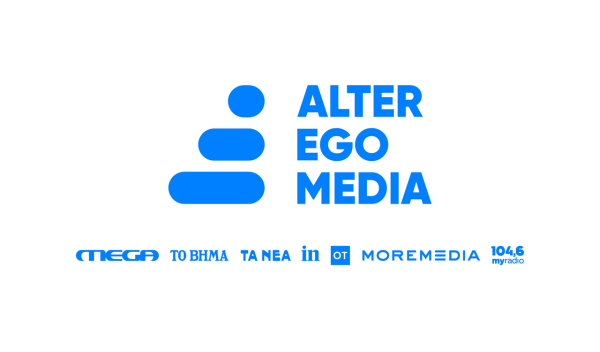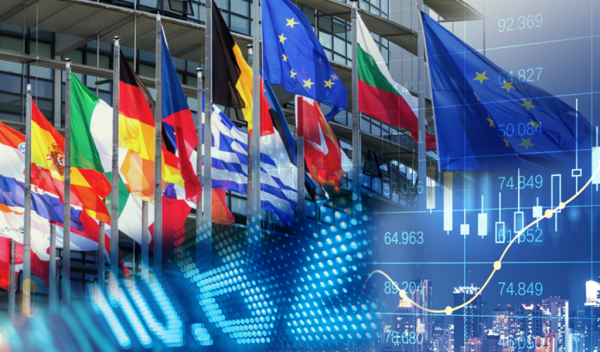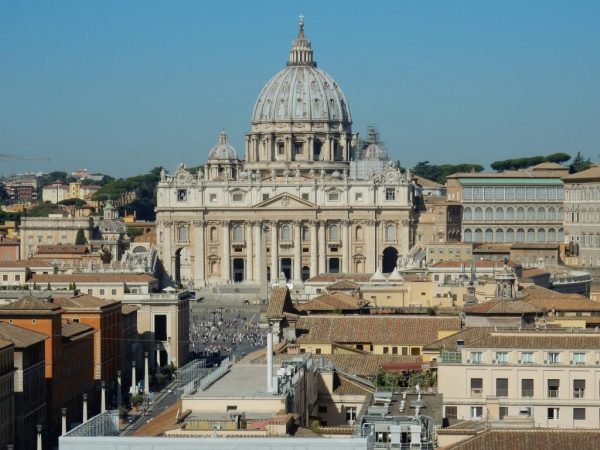
2023 is an election year for Greece, Turkey and the Republic of Cyprus. And this is a “difficult moment” for Greek-Turkish relations, as diplomats and analysts emphasize, but also for the efforts to maintain tensions at a low point. But it seems quite the opposite is true. As everyone admits, the pre-election period, and in fact in all three countries at the same time, is the occasion for tones to rise even more.
After all, tension, as an element of simple distraction, is a great beguilement in the face of everyday problems, which any Turkish government, present, or future, have to deal with.
Greece has become part of Turkey‘s pre-election agenda for good, as has Turkey in Greece. The attacks of Turkish president, Recep Tayyip Erdogan, have also unfettered the Turkish opposition, which is now attacking Greece from more extreme positions, reminiscent of other times.
Focus on 2023
The emphasis on 2023 and Erdogan’s need to present his country in view of the 100 years since the foundation of the modern Turkish state as an international and powerful player is also infused into Ankara’s policy towards Athens.
And the question that keeps coming back is: Erdogan or the opposition? Does Greece have an “interest” in a change of government in Turkey and to what extent will there really be a change for the better relative to Ankara-Athens relations and a willingness to avoid proclivities from Turkey?
As Recep Tayyip Erdogan may have molted into an autocratic “sultan” according to the Western media, yet, as Die Welt recently noted, upon his rise to power in 2003, he was the leader pushing for reforms when Ankara was going through the “golden years” of its relations with the EU.
The opposition promises freedoms and rights, denounces the persecution of Turkish rebels and swears by the principles of democracy. However, for those who know the history of Turkey, no political force can declare itself “innocent” and divorced from the “deep state”.
Erdogan as a leader offering solutions
After all, the Erdogan, of the first decade in power, appeared as the leader of solutions and not of tensions towards Greece.
His attitude changed radically, mainly, after the coup attempt in 2016. The tension gradually escalated and in 2020 it reached the limit of a “hot incident”.
Greece-Turkey relations returned to the agenda in a negative way and from then on, a government-opposition competition began for who would appear with a more nationalist positions.
Others…
And although the mayor of Istanbul, Ekrem Imamoglu, appears to have the most compromising rhetoric, he has not hesitated to pay his respects to the ultra-nationalist founder of the Gray Wolves, Arpaslan Turkes, with a characteristic tweet on the anniversary of his death.
Even if Imamoglu appears in favor of Greece-Turkey relations, CHP party leader Kilicdaroglu’s rhetoric is very different.
It is telling that CHP head Kemal Kilicdaroglu has repeatedly and vehemently attacked Erdogan using Greek-Turkish differences, accusing him of not saying anything about the “occupied by Greece” islands.
The head of the official opposition recently claimed that Greece “has occupied 18 islands in the Aegean” while he claimed that when professors and soldiers raised the issue of “militarization of the islands” Erdogan chose not to say a word while now he “acts as a bully” .
Referring to the past, he reminded Erdogan that the threats he is making against Greece are an empty letter, since as Kilicdaroglu pointed out, Ecevit and Erbakan, when they took the “Turkish part” of Cyprus, gave no warning to anyone…
“She-wolf”
Accordingly, the president of the “Good Party” (Iyi Partisi) Aksener has referred several times to the Asia Minor Disaster and how Turkey threw the Greeks into the sea.
After Erdogan’s “Mitsotakis does not exist for me” she declared: “As Turkey, we have right on our side on the issue with Greece until the end. But we are worried that we will eventually lose it because of Mr. Erdogan. We know very well that Mr. Erdogan is likely to say ‘I was just kidding’ tomorrow.” She herself has described the “militarization of the Aegean islands”, while she has referred to the “invasion of Greece on islands that are known to belong to Turkey”.
The instrumentalization of nationalism has increased to such an extent that the president of the far-right “Good Party”, Meral Aksener, wanting to respond to the sexist attack by Erdogan who called Gezi protesters “rotten whores”, did so by referring to the Asia Minor Disaster, highlighting the polarization, saying that “this insult, that not even the Greek who cannot forget that he was thrown into the sea can stomach”.
Erdoğan’s former Foreign Minister, Ahmet Davutoglu, who is currently president of the Future party, is constantly adding fuel to the fire.
In his statements after the visit of Kyriakos Mitsotakis to the US, Davutoglu had argued that Erdogan displayed a “delayed reaction” to what the Greek prime minister said, who in the US “expressed positions that will never be accepted by Turkey”.
Palpable “solutions” and reality
In this context, diplomats note that the solutions of Ekrem Imamoglu or Mansour Yavas may seem attractive to some, however, in the issues that concern Athens, the only solution is for Turkey to decide to renounce unilateral and maximalist claims, to remove the casus belli and comply with international law. They also note that Turkey dusts off Greek-Turkish oduring every crisis…
They also note that Erdogan, from the Gezi crisis until today, has proven that he is “too tough to die”.
In this context and as Greek-Turkish relations officially become a basis for defusing and exporting internal tension… the doctrine that is now being cemented is “whoever is not with us is against us”.
Latest News

IMF: US Tariffs Shake Global Economy, Outlook Downbeat
IMF slashes global growth forecast to 2.8% as U.S. tariffs create uncertainty and ‘negative supply shock

First Step Towards New Audiovisual Industry Hub in Drama
The project is set to contribute to the further development of Greece’s film industry and establish Drama as an audiovisual hub in the region

Airbnb Greece – Initial CoS Ruling Deems Tax Circular Unlawful
The case reached the Council of State following annulment applications filed by the Panhellenic Federation of Property Owners (POMIDA)

Mitsotakis Unveils €1 Billion Plan for Housing, Pensioners, Public investments
Greek Prime Minister Kyriakos Mitsotakis has announced a new set of economic support measures, worth 1 billion euros, aiming to provide financial relief to citizens.

Alter Ego Ventures Invests in Pioneering Gaming Company ‘Couch Heroes’
Alter Ego Ventures' participation in the share capital of Couch Heroes marks yet another investment by the Alter Ego Media Group in innovative companies with a focus on technology.

Corruption Still Plagues Greece’s Driving Tests
While traffic accidents continue to claim lives on Greek roads daily, irregularities and under-the-table dealings in the training and testing of new drivers remain disturbingly widespread

Pope Francis Died of Stroke and Heart Failure Vatican Confirms
As news of the official cause of death spread, tributes poured in from across the globe. The 1.4 billion-member Catholic Church is united in grief, remembering a pope who championed inclusion, justice, and compassion

Increase in Both Museum Visits, Revenues for 2024
As expected, the Acropolis was the top archeological site in the country, followed by Sounion, Mycenae, the ancient theater of Epidaurus, and Vergina in northern Greece

Where Greece’s Tourists Come From: A Look at 2025’s Top Visitor Markets
The United Kingdom continues to hold the top spot as the largest source of incoming tourism, with 5.6 million seats booked for Greece this summer — up 2.2% from last year. This accounts for 20% of all international air traffic to Greece

Pope Francis: A Pontiff Who Reshaped the Papacy and Sparked a Global Conversation
His first words from the balcony of St. Peter’s Basilica—“Brothers and sisters, good evening”—set the tone for a pontificate that would challenge norms, favor mercy over dogma, and bring the papacy closer to the people.












![Πλημμύρες: Σημειώθηκαν σε επίπεδα ρεκόρ στην Ευρώπη το 2024 [γράφημα]](https://www.ot.gr/wp-content/uploads/2025/04/FLOOD_HUNGRY-90x90.jpg)



![Ξενοδοχεία: Μεγάλο το ενδιαφέρον για επενδύσεις στην Ελλάδα – Η θέση της Αθήνας [γραφήματα]](https://www.ot.gr/wp-content/uploads/2025/03/Athens-hotels-90x90.jpg)
























 Αριθμός Πιστοποίησης
Αριθμός Πιστοποίησης